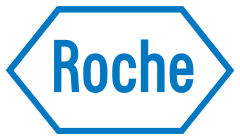Additional data across neurological disorders, including Alzheimer’s disease, help advance the scientific understanding of these conditions and the potential impact of early treatment

Roche announced new data for its approved and investigational medicines across neurological disorders will be presented at the 74th American Academy of Neurology (AAN) Annual Meeting being held 02-07 April in Seattle and virtually 24-26 April 2022. These data include twenty-four abstracts highlighting Roche’s expansive neuroscience portfolio across five therapeutic areas, including Ocrevus (ocrelizumab) in relapsing, secondary and primary progressive multiple sclerosis (RMS, SPMS and PPMS), Evrydsi (risdiplam) in spinal muscular atrophy (SMA), Enspryng (satralizumab) in neuromyelitis optica spectrum disorder (NMOSD), along with data from investigational programs in Alzheimer’s disease (AD) and Duchenne muscular dystrophy (DMD).
“The longer-term efficacy and safety data for Ocrevus, Evrysdi and Enspryng, as well as findings from diverse and underrepresented populations, demonstrate the significant impact of our expanding neuroscience portfolio,” said Levi Garraway, M.D., Ph.D. Roche's Chief Medical Officer and Head of Global Product Development. “We remain committed to advancing the science and improving the lives of people living with neurological conditions.''
Multiple Sclerosis
Roche will present 11 abstracts on Ms and Ocrevus at AAN. New data from the one-year interim analysis of Consonance, a first-of-its-kind open-label Phase III trial, will show the treatment effect of Ocrevus in the complete spectrum of progressive MS – SPMS and PPMS – with novel composite disability endpoints.
Additionally, an analysis of a U.S. claims database will highlight treatment disparities between Black and Hispanic/Latino-American patients and non-Hispanic white patients in the two years after diagnosis. Addressing health inequity and inclusion in research is central to Roche’s mission to improve patient health outcomes. The insights from the data presented at AAN reinforce the importance of Roche’s Chimes trial evaluating Ocrevus in Black and Hispanic patients with MS, which is now fully enrolled across sites in the U.S. and Kenya.
Spinal Muscular Atrophy
Roche will present encore data from the clinical development programme for Evrysdi, including 3-year data from SUNFISH Part 1 and 2, highlighting the long-term efficacy and safety of Evrysdi in people aged 2-25 years with Type 2 or Type 3 SMA. In addition, updated interim efficacy data from the RAINBOWFISH study in presymptomatic infants with SMA will be presented. The clinical development programme represents the broad real-world spectrum of people living with SMA from newborn babies to people aged 60 years old.
Roche will also share the design of the new Manatee trial, a multi-centre, randomised, placebo-controlled, double-blind study studying GYM329, an investigational anti-myostatin, in combination with Evrysdi.
Neuromyelitis Optica Spectrum Disorder
Roche will present encore long-term efficacy and safety data from the Enspryng SAkuraSky and SAkuraStar studies. These data reinforce the previously observed efficacy and safety of Enspryng, the first and only approved treatment designed to target and inhibit the IL-6 receptor activity, and that can be administered subcutaneously every four weeks at home after training from a healthcare provider.
To increase the scientific understanding of Nmosd and improve care for all people living with the condition, Roche has initiated SAkuraBONSAI, a multi-centre, Phase IIIb, international study evaluating Enspryng treatment for people with AQP4-IgG seropositive Nmosd who are treatment naïve, or where prior rituximab (or biosimilar) treatment has failed; SAkuraBONSAI will further evaluate disease activity and progression using comprehensive imaging, biomarker and clinical assessment.
Alzheimer’s Disease
Roche will present updates from its AD clinical programme, including baseline characteristics of the Phase III Graduate studies in patients with early AD.
In addition, the design of the post-GRADUATE open-label rollover study evaluating the long-term safety, tolerability and efficacy of gantenerumab in patients from the GRADUATE 1 and 2 studies will be presented.
For more than two decades, Roche has been studying and developing gantenerumab, a late-stage investigational subcutaneously-administered monoclonal antibody, for the treatment of AD. Data from the pivotal GRADUATE trials are expected in the fourth quarter of 2022. Gantenerumab is also being evaluated in the Phase III SKYLINE prevention trial to better understand the potential of the investigational therapy to slow disease progression in people with the earliest biological signs of AD.

Subscribe To Our Newsletter & Stay Updated